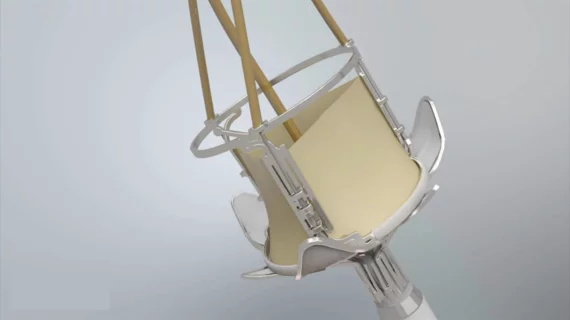Cardiologists perform world’s first TAVR with new ultra-low profile valve
Cardiologists have completed the very first implantation of a new ultra-low profile transcatheter aortic valve replacement (TAVR) valve designed to make transfemoral access possible for all patients.
The new-look Xemed TAVR System was developed by Valve Medical, a wholly owned subsidiary of Medinol focused on treating structural heart disease. It features a modular two-piece design and can be implanted using a standard 12 French sheath.
Ran Kornowski, MD, director of interventional cardiology at Rabin Medical Center in Israel, led the procedure. The patient was an 88-year-old male with severe peripheral vascular disease. He had a long history of hospital admissions due to his condition and was originally not seen as a viable candidate for TAVR or surgery. The procedure was viewed as a success.
“We were impressed with the device and its straightforward implantation,” Kornowski said in a prepared statement from Valve Medical. “The low profile will allow us to treat most patients by making the procedure safer and more accessible to a broader population.”
“We believe the ultra-low profile, adaptive sealing, ease of coronary access and advanced frame shape broaden the applicability of the device to more people, providing clinical benefits to both patients and physicians,” added Yoram Richter, PhD, chief scientific officer of Valve Medical.
According to Valve Medical, the Xemed TAVR System is the world’s first modular TAVR valve. The company also noted that it is still developing the device. The company is working on version compatible with 9 French sheaths.
Details of the procedure, as well as multiple clinical images, were shared with attendees at TVT 2023 in Phoenix. That presentation is available here.

